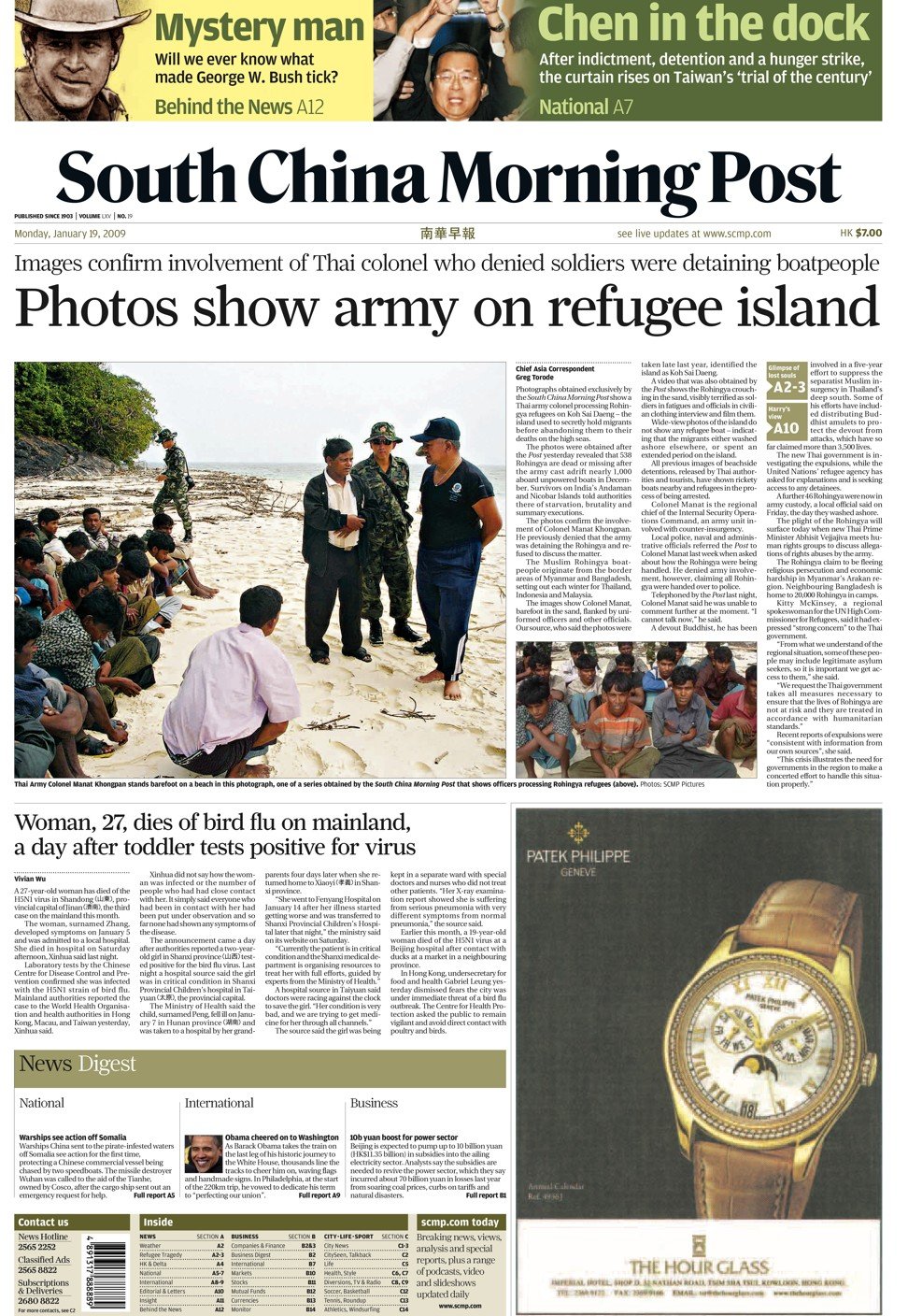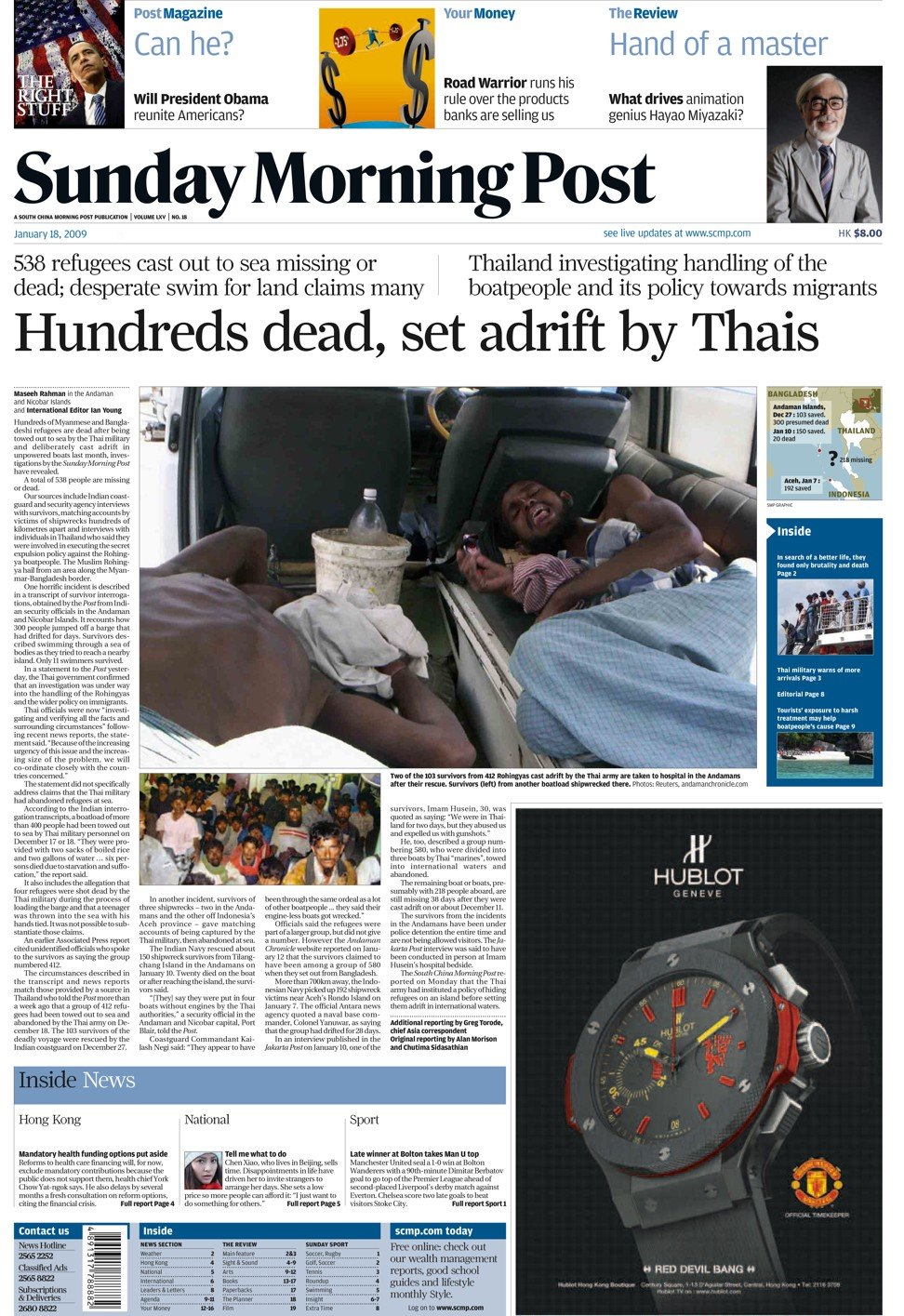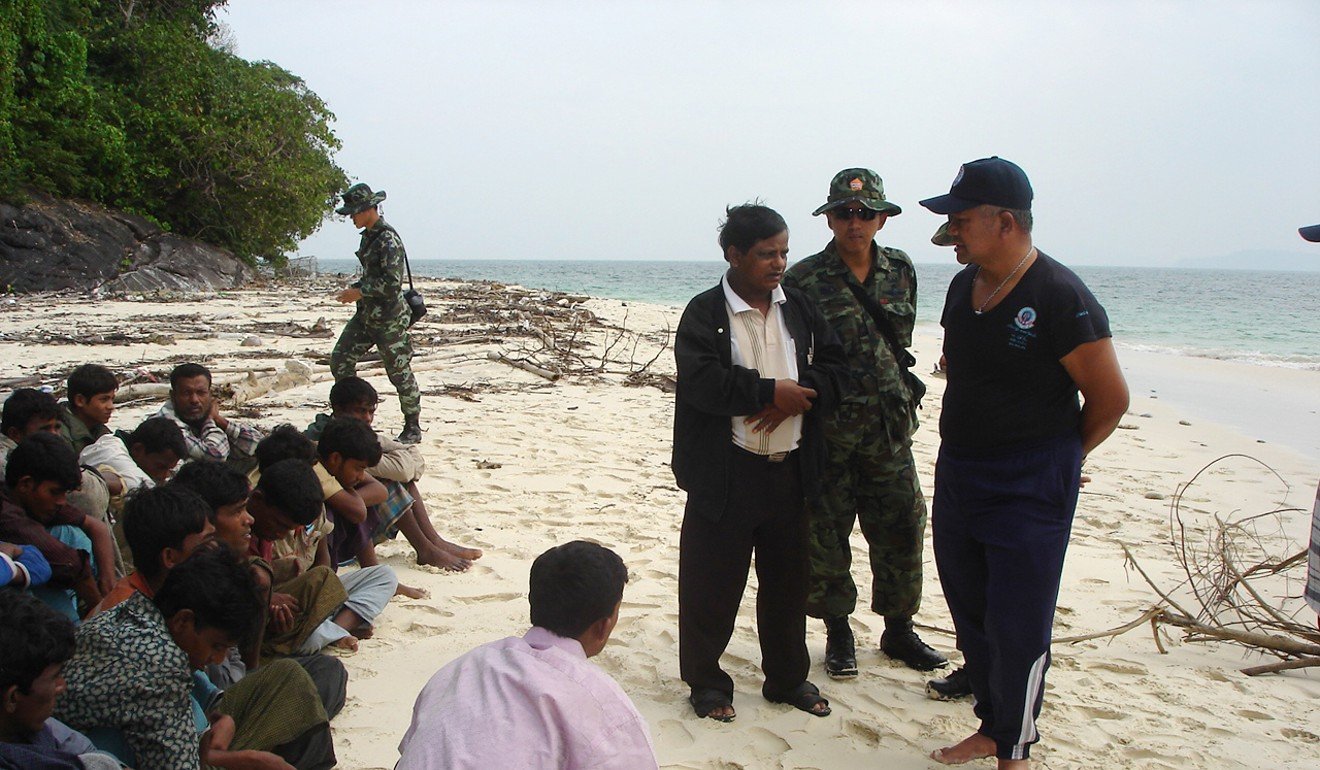
Justice served: Thai army general is convicted of human-trafficking, eight years after SCMP exposed him
Lieutenant General Manus Kongpan was identified by the South China Morning Post in 2009 as orchestrating the brutal secret detention and expulsion of Rohingya migrants
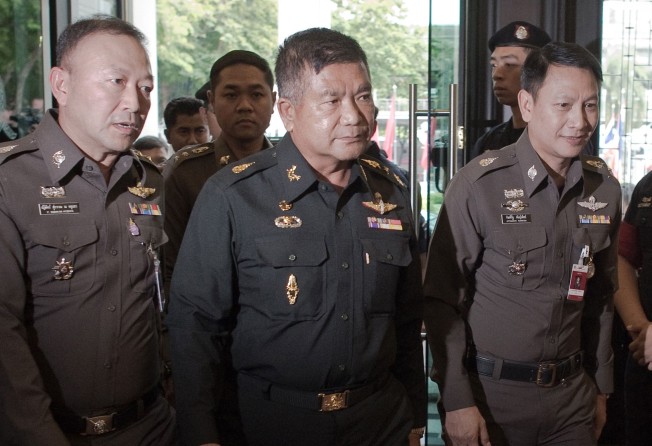
A Thai army general was one of the most prominent figures found guilty on Wednesday in a major human-trafficking trial that included more than 103 defendants accused of involvement in a modern-day slavery trade.
Lieutenant General Manus Kongpan was convicted of several offences involving trafficking and taking bribes.
At least one other defendant considered a kingpin in the illegal trade, Pajjuban Aungkachotephan, was also found guilty. He was a prominent businessman and former politician in the southern province of Satun. Sentences were expected on Thursday.
By Wednesday evening, about 60 verdicts had been handed down. Some of those found guilty of trafficking were also convicted for taking part in organised transnational crime, forcible detention leading to death, and of rape.
Manus, also known as Manat Kongpan, was exposed by the South China Morning Post eight years ago for orchestrating the brutal secret detention and expulsion of Rohingya migrants. Other defendants include police officers, local politicians and Myanmar nationals.
In January 2009, the Post published a front-page story and photographs revealing Manus, then an army colonel with the Internal Security Operations Command (ISOC), had overseen the secret detention of Rohingya migrants on a remote Thai island.
The photos confirmed the involvement of Manus. They showed him barefoot in the sand, flanked by uniformed officers and other officials. He had previously denied the army was detaining the Rohingya and refused to discuss the matter.
However, the Post revealed the Thai army had been systematically towing Rohingya migrants out to sea on unpowered boats and then simply casting them adrift. Hundreds died as a result.

A video obtained by the Post showed the Rohingya crouching in the sand, visibly terrified as soldiers in fatigues and officials in civilian clothing interview and film them.
Manus denied mistreating the migrants, and told the Post in an interview that he had instead tried to help them, by paying for their food and water “from my own pocket”.
Prime Minister Prayuth Chan-ocha, head of the ruling junta, on Wednesday asked Thais not to put the blame for trafficking on military figures, a reference to the army general on trial.
“There are many people in this human-trafficking network,” Prayuth told reporters. “Don’t group all soldiers in the country as one.”
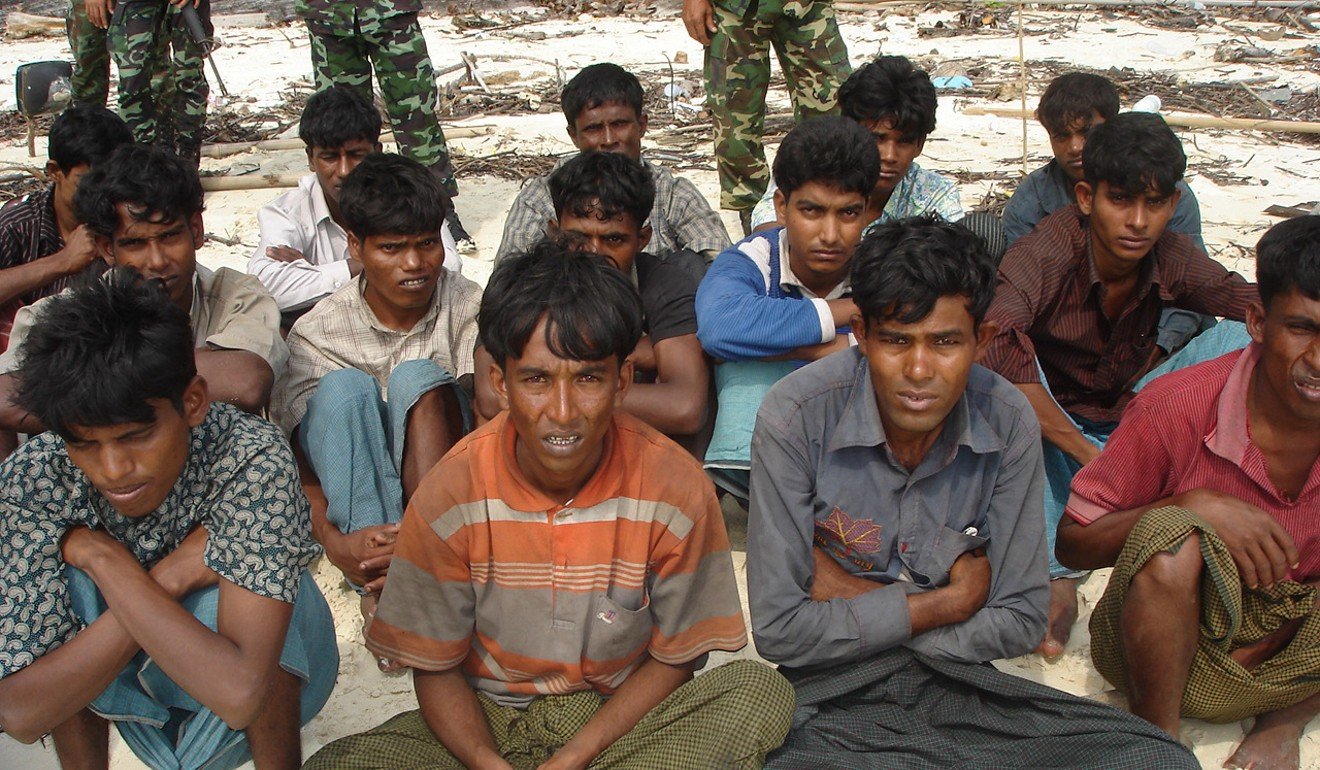
The trial began in 2015 after a Thai crackdown on trafficking gangs following the gruesome discovery of dozens of shallow graves near the Thai-Malaysia border which authorities said was part of a jungle camp where traffickers held migrants as hostages until relatives were able to pay for their release.
Many never made it out. Some of those who died are thought to have been Rohingya – a persecuted Muslim minority from Myanmar’s troubled Rakhine State – although Thailand has yet to release a full report on the graves and the results of post-mortem forensic testing.
The trial has been marred by allegations of intimidation against witnesses, interpreters and police investigators.
Rights groups say trafficking networks were largely left intact by the 2015 crackdown and trial.
“We believe that the crackdown is only a disruption of a trafficking network but that network is still very much well in place,” said Amy Smith, an executive director of rights group Fortify Rights.
“Today’s verdict is a major step in efforts to combat human-trafficking in Thailand,” said Sunai Phasuk, a researcher for the group Human Rights Watch.
“Now that we see the conviction of a senior army general, local politicians, influential tycoons, and ... others complicit in trafficking of Rohingya, this should send a strong message that regardless of their status and affiliation, no one is above the law.”
Thailand’s government denies that trafficking syndicates are still flourishing and has said it has largely eliminated human-trafficking in the country.
Journalists were not allowed in the court room on Wednesday but proceedings were relayed on television screens provided by the court.
Thailand has historically been a source, destination and transit country for men, women and children who are often smuggled and trafficked from poorer, neighbouring countries including Cambodia, Laos and Myanmar to work in Thailand or further afield in Malaysia, often as labourers and sex workers.
Last month the US State Department left Thailand on a Tier 2 Watchlist, just above the lowest ranking of Tier 3, in its annual Trafficking in Persons (TIP) Report because it did not do enough to tackle human smuggling and trafficking.
